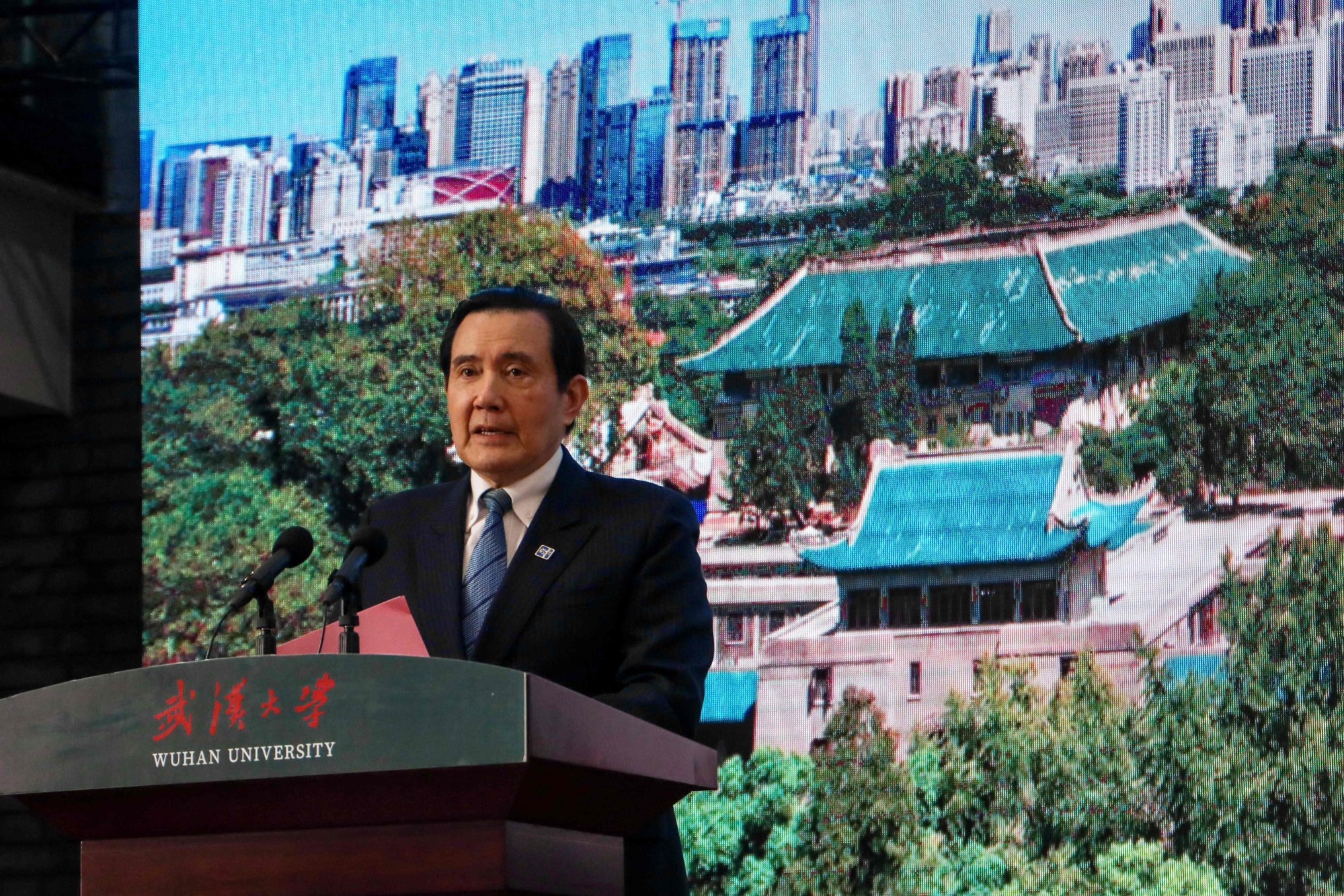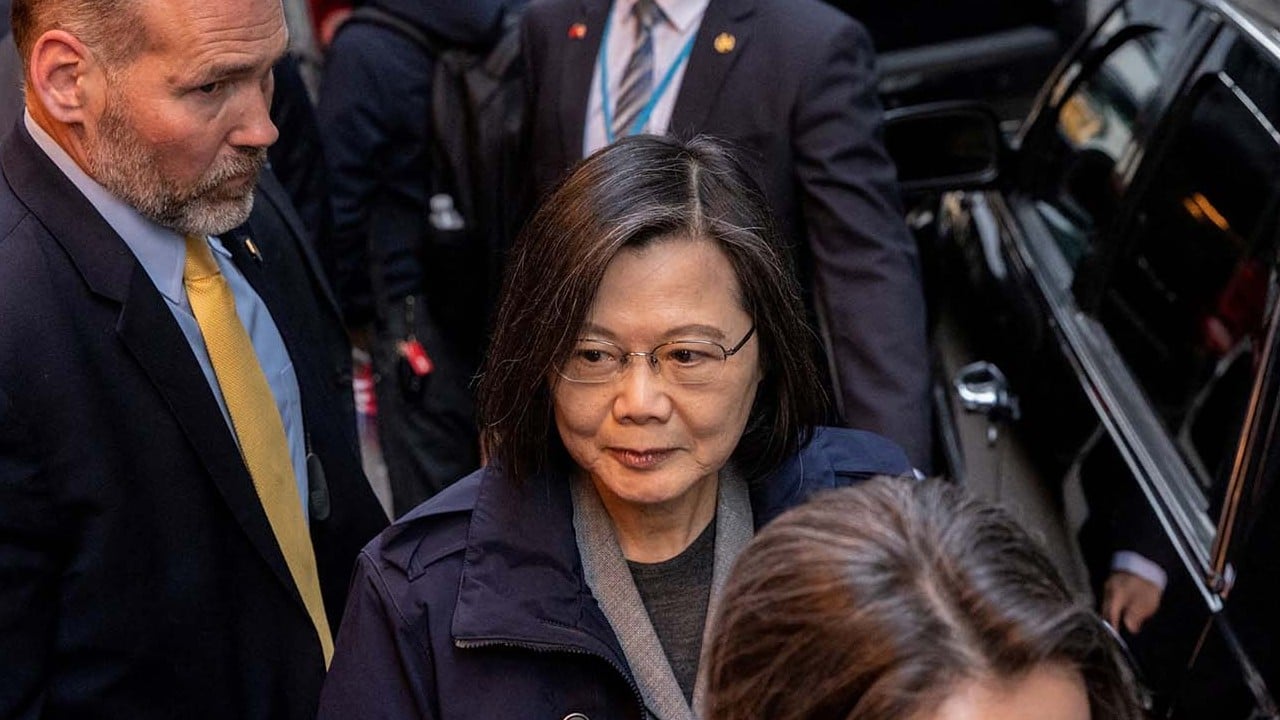
Cross-strait hostility at worrying level, Taiwan’s Ma Ying-jeou tells top mainland China official
- Covid and politics have stopped contact between the two sides, Ma says on landmark trip across the Taiwan Strait
- He also pays cautious tribute to self-ruled island’s political system in remarks unlikely to offend Beijing, analyst says
Song is the most senior mainland official Ma has met on his historic trip – the first by a former leader of the self-ruled island to the mainland since the end of China’s civil war in 1949.
During the meeting Ma reaffirmed the 1992 consensus that there is only “one China”, with each side having its own interpretation of what that means.
Beijing insists on the consensus as a foundation for talks and Ma recalled his meeting with Chinese President Xi Jinping in Singapore in 2015, when both reaffirmed the principle.
“I met Mr Xi in 2015 to show to the outside world that cross-strait relations can be handled by the two sides themselves in a peaceful way, and will develop in an institutionalised way in the future,” he said.
Song praised Ma for making “important contributions” to cross-strait ties.
“We are a family and no one can separate us. It is the common wish of people from both sides to want peace, development and cooperation,” Song said.
Earlier in the day, Ma paid cautious tribute to the island’s democratic political system.
The Five-Power Constitution is the political cornerstone of the Kuomintang, China’s ruling party before 1949, and refers to the legislative, executive, judicial, examination and control powers of government. It remains the foundation of Taiwan’s political structure.
The Three Principles of the People – nationalism, democracy, and the livelihood of the people – were laid down as the basis of the KMT and still appear in Taiwan’s constitution.
The former president’s visit is being watched carefully on both sides of the strait as Ma seeks to ease tensions without alienating Taiwanese voters who will elect the island’s next president in January.
The ruling Democratic Progressive Party claims Ma is being used as a political tool in Beijing’s plans for unification with the island.
Meanwhile, mainland state broadcaster CCTV censored all mentions by Ma on Tuesday to the Republic of China, the official name of the Taipei government.
Beijing does not acknowledge the ROC and insists the People’s Republic of China is the sole legitimate government of China, of which Taiwan is a part.
Beijing-based political analyst Wu Qiang said Ma’s references to the ROC and the constitution were a personal statement as a former president of the island and former leader of the KMT and not a bigger political message.
“The gestures taken by Ma came naturally and mainly show his personal identity. Apart from this, there are no further political propositions by him,” Wu said, adding that Ma’s remarks were unlikely to antagonise Beijing.

Also on Thursday, Ma visited an exhibition on Covid-19 prevention efforts in Wuhan, where he praised residents for their efforts in the early days of the coronavirus.
He said the efforts of the residents were very admirable and contributed not only to mainland China, but “to the entire human race”.
Playing down the political tone of his visit, Ma said that his trip was intended to promote the exchanges and understanding on both sides of the strait, especially among young people.
In talks to Wuhan University students in the afternoon, Ma called for more contact between young people on both sides of the strait to help “increase friendliness and reduce hostility”.
Ma is making the trip with a group of university students from Taiwan and said he would also invite mainland university students to visit the island.



